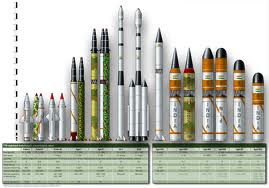Being a sports enthusiast, I love being here at Complete Sports Complex. You too must have played or followed some sport or the other. So here is a question for you - He received the Arjuna award at the age of 15, Padma Sri at 18 and later Padma Bushan and Padma Vibhushan. Recently, he became the World Champion for the 5th time. Who is he..??
He is the Grandmaster, Vishwanathan Anand. Likewise, exemplary sportspersons like Sachin, Sania, and Saina etc. are role models for budding sportspersons in India. They have proved that if you follow your passion sky is the limit.
Now guess this one - He was a seven-time national steeplechase champion and represented India at the 1958 Tokyo Asian Games. A property dispute with his relatives and harassment made him a rebel dwelling in the Chambal valley. He met a gruesome death at the hands of police. I am talking about Paan Singh Tomar. Recently, Archer Nisha Rani (Bangkok GP gold medalist), had to sell her world-class archery equipment due to poverty and the list is endless…
Abhinav Bindra is the first Indian to win an individual gold medal at the 2008 Olympics. How? Because his affluent parents could afford to make a shooting range worth Rs. 10 crores in their backyard and he had a 5 time Olympics shooter as his coach.
Wealth brings prosperity. It has made IPL a game of glamour and a road to stardom. But, IPL is also a platform for players to get into the national team. The World Series Hockey Championship is also inspired by IPL. Now, Shahrukh Khan buying 50% stake in Dempo Football club can prove a game changer for Indian football. However, where there is money there is envy. People argue that the IPL is Indian Paisa League. Money is a magnet that attracts power. Where the BCCI chief is a team owner and the chief selector is the team’s ambassador, the argument seems plausible.
In India, we are also compelled to choose one between hobby and career. Why not hobby as a career? As they say – Do what you love and love what you do. But, boss, it’s easy to say, but damn tough to do. For those who choose a sport as their profession, the issues leading to their misery are lack of - sponsors, proper equipment, medical and training facilities, and experienced coaches. Crores are gulped by opportunists and our Olympics team is being served rotten food in the training camps.
There are countless people who have made the nation proud even without any support. It’s now the government’s responsibility to alleviate their misery and utilize their potential. We need funding in sports and to have sports as a part of school curriculum, to recognize talent and hone their skills so as to create more and more role models. Only then the nation can bask in the glory of World Champions and Olympic medalists.
P.S.: (This article is a modified version of my Toastmasters Project #2 speech)





